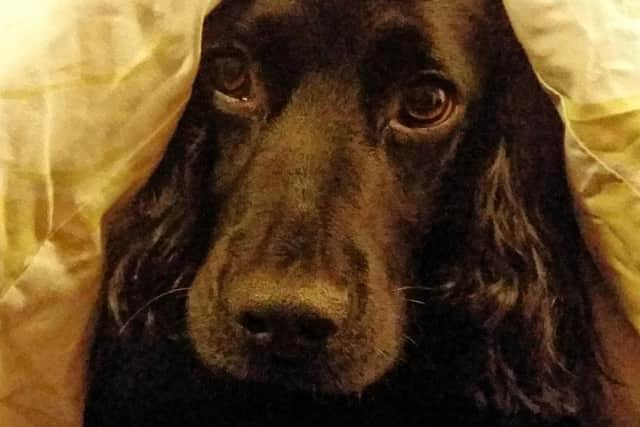Here's how to help your pets cope with fireworks noise
and live on Freeview channel 276
White Cross Vets, who have practices in Handsworth, Sheffield and Balby, Doncaster, estimate that approximately three-quarters of pets suffer from anxiety because of loud fireworks at this time of year.
Laura Paterson, group clinical director at White Cross Vets, said: “Many public fireworks displays and bonfires have been curtailed due to the Covid-19 pandemic, so we’re anticipating a big increase in garden firework displays over the coming weeks.
Advertisement
Hide AdAdvertisement
Hide Ad"Bonfire Night is a stressful time for lots of cats, dogs and other pets, that is often made worse by their very acute hearing, and this year could be worse than usual.


“We also see lots of self-injuries at this time of year, often due to panicked pets running to escape the noise or chewing things that they shouldn’t to alleviate stress.
“However, there are things pet owners can do to tackle anxious behaviour, as well as helping to prepare pets for the firework season.
"There are also treatments and medications available to help pets stay calm. Anyone concerned about their pets should prepare now and speak to their vet about particularly severe cases.”
Advertisement
Hide AdAdvertisement
Hide AdWhite Cross Vets have compiled a list of tips for pet owners in the run up to Bonfire Night:-
Keep your pets indoors and close the curtains when it’s dark outside, to reduce their exposure to fireworks. Turn the volume up on the television or radio to counter the noise. Distractions such as new toys and chews can also help. Where possible, stay in with your pet during the fireworks season, so they are not alone. Comforting and reassuring pets can make the problem worse because it rewards them, so they think the fearful behaviour is the correct response. Try to act normally around them to show that there is nothing to be afraid of. Create safe places or dens in your home where your pets can hide and feel secure. For pets living outside, if it’s not possible to move them indoors, their pens should be partly covered with blankets, which will help to soundproof them and block out some of the flashes. In case pets run away, it’s worth double checking that their microchip details, registered against the national databases, are up to date. There are a wide range of effective products, such as Feliway for cats and Adaptil for dogs, that release natural calming pheromones. Their clinics also stock a range of nutraceuticals, such as Vetpro Stress and Anxiety, which can help support behavioural management. For extreme cases, your local veterinary clinic should be able to provide advice about noise desensitisation programmes that are suitable for your pet.
White Cross Vets, who are part of IVC Evidensia, have been caring for pets for 80 years, having started in West Yorkshire in 1937. The firm now employ a 240-strong team across 22 practices in the UK. For more information about White Cross Vets, visit www.whitecrossvets.co.uk.
In these confusing and worrying times, local journalism is more vital than ever. Thanks to everyone who helps us ask the questions that matter by taking out a digital subscription or buying a paper. We stand together. Nancy Fielder, editor.
